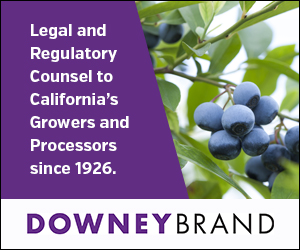FDA proposes change to how “healthy” foods are defined
Nutritional Outlook
Coinciding with the White House Conference on Hunger, Nutrition, and Health, the U.S. Food and Drug Administration (FDA) has published a proposed rule which would change the criteria for foods to carry the “healthy” claim. Currently, there are specific criteria based on minimum amounts of individual nutrients such as vitamin A, vitamin C, calcium, iron, protein, and dietary fiber, as well as limits on total fat, saturated fat, cholesterol, and sodium. These standards were set in 1994 and do not reflect our current understanding of nutritional science.
California offers to reduce imports of Colorado River water
CalMatters
Facing demands from the federal government, California water agencies offered today to cut back the amount of water they import from the Colorado River starting in 2023.
After months of negotiations, water agencies wrote to federal agencies today offering to reduce California’s water use by 400,000 acre-feet every year through 2026. That amounts to 9% of the river’s water that California is entitled to under its senior rights.
California's drought withers tomatoes, pushing grocery prices higher
Reuters
A lack of rain and snow in central California and restricted water supplies from the Colorado River in the southernmost part of the state have withered summer crops like tomatoes and onions and threatened leafy greens grown in the winter.
That has added pressure to grocery prices, putting a squeeze on wallets with no end in sight.
Global Food Prices Coming Back Down
Food Processing
World food prices are edging back downward after spiking due to the Ukraine war, according to the United Nations’ Food and Agriculture Organization (FAO).
The FAO’s price index, which tracks globally traded food commodities, has receded for the sixth month in a row. It stood at 136.3 points in September, down from 137.9 in August. The high stood at 157.9 in March, immediately after Russia’s invasion of Ukraine.
Visit https://www.naylornetwork.com/cfp-nwl/articles/index-v2.asp?aid=752483&issueID=86262 to view the full article online.













